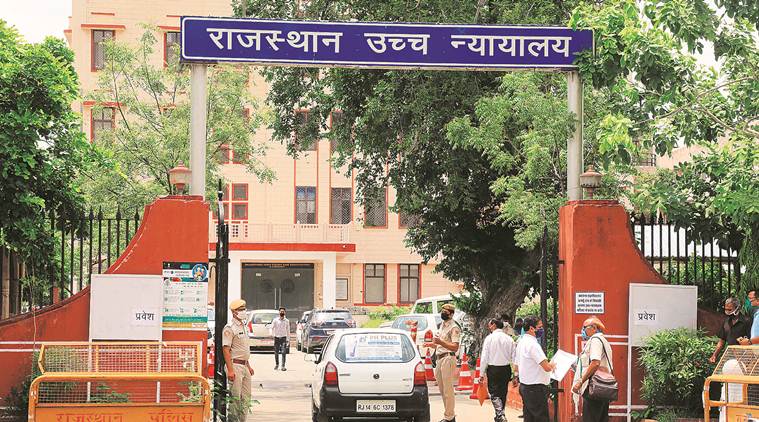 The high courts and the Supreme Court routinely refuse to interfere in matters where the concerned authority has merely issued a show cause notice or granted an opportunity of being heard. (Express file photo by Rohit Jain Paras)
The high courts and the Supreme Court routinely refuse to interfere in matters where the concerned authority has merely issued a show cause notice or granted an opportunity of being heard. (Express file photo by Rohit Jain Paras)
The Speaker of the Rajasthan State Assembly has requested the Supreme Court to permit the withdrawal of the Special Leave Petition filed by him, and his request was granted without ado. The challenge to the interim orders of the Rajasthan High Court directing that status quo be maintained with regard to the impugned notices dated July 14, 2020, issued to the Sachin Pilot splinter group of the Indian National Congress is at this pass. The writ petition in which this status quo order came to be passed is yet to be finally decided, and will be listed for hearing on mentioning by the counsel for the parties. The public would have expected the chief justice to fix an actual and early date of hearing.
The Kihoto Hollohan decision of the Supreme Court delivered in 1992 will indubitably constitute the fulcrum of arguments. The Constitution Bench which heard it was split 3:2. The plurality upheld the constitutionality of the Tenth Schedule of the Constitution. However, the minority struck it down on the premise that it violated the basic structure of the Constitution and should have been circulated to all the state legislatures and should have received the assent of their majority.
In the course of the very brief hearing before the Supreme Court, the Bench had commented that the correctness of Kihoto Hollohan needs to be considered. If this exercise had been undertaken and the majority opinion overturned, it would have required a seven-judge Bench to be constituted in respect of the constitutionality of the Tenth Schedule, which challenge has not been voiced from any quarter. The cherished tenet of independence of the executive, the legislature and the judiciary has presently received repose.
The High Court is not empowered to unsettle Kihota Hollohan and must apply its ratio. This is that the Chairman/Speaker is the final arbiter of whether any member(s) of Parliament or a legislature has become subject to disqualification. The very fine distinction or issue inter alia culled out by the Rajasthan High Court to exercise its extraordinary constitutional jurisdiction under Article 226 is whether Kihoto Hollohan had tested the vires of Para 2 (1)(a) of the Tenth Schedule in the context of “intra-party dissent”. This Para postulates disqualification of a member of a House belonging to any party “if he has voluntarily given up his membership of such political party”. This is against the backdrop of the opinion in paragraph 21 of the judgment of the Supreme Court in Kihota Hollohan that “paragraph 2 of the Tenth Schedule of the Constitution is valid. Its provisions do not suffer from the vice of subverting democratic rights of elected members of Parliament and the legislatures of the States. It does not violate their freedom of speech, freedom of vote and conscience as contended”.
Equally remarkable is the rejection by the Rajasthan High Court on the grounds of lack of jurisdiction of the prayer for “upholding the status of the petitioners as members of the Rajasthan Legislative Assembly on account of them continuing to be members of the Indian National Congress” and “declaring that the alleged actions of the petitioners as members of the Rajasthan Legislative Assembly do not fall within the purview of disqualification envisaged under para 2 of the Tenth Schedule”. Nevertheless, the status quo came to be ordered.
The high courts and the Supreme Court routinely refuse to interfere in matters where the concerned authority has merely issued a show cause notice or granted an opportunity of being heard. This is an inviolable tenet of natural justice. The Rajasthan High Court will have to decide whether the Speaker has done anything else.
The writer is a former Judge of the Supreme Court of India